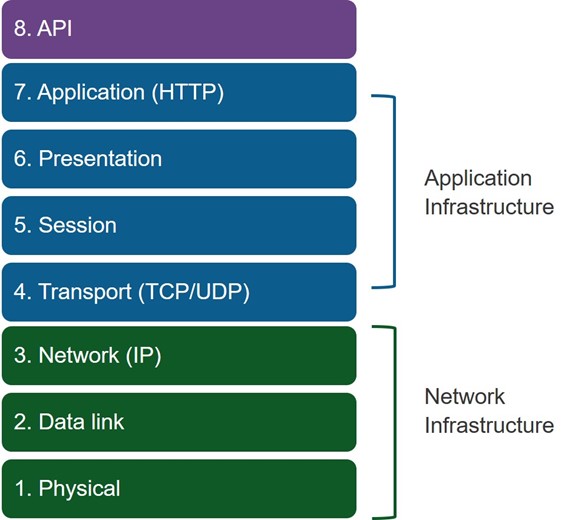The core reason for the success of the Internet lies in a few key protocol standards: IP, TCP, UDP, and DNS. When vendors and providers agreed upon these standards – and implemented them – the Internet exploded with potential.
The reason for this is simple: developers did not have to concern themselves with implementing the building blocks. They built atop well-defined protocols and assumed the underlying platform would handle all the minutia.
We assume, today, that HTTP is among those protocols; that it is available and will behave in a reliable, predictable way. That assumption is backed up by the fact that HTTP is nearly ubiquitous. The web – and most of the mobile world – runs on HTTP. Smart devices, connected appliances, and my fish tank automation system all rely on HTTP to exchange API calls and data with the apps and services I use to monitor and operate them.
HTTP is the de facto application transport standard.
Honestly, there is little value to be had at the HTTP layer today except as a standard transport for application-to-application communication. By relieving developers of the need to concern themselves with network and application infrastructure – including HTTP - we’ve seen incredible momentum up the stack to focus on the APIs that power the digital economy.
Value today is found in APIs, and the way business and technology use them.
It’s not just that APIs are used to exchange data. Well-defined APIs describe processes – both business and operational – that enable automation and bring new efficiencies to how we develop and operate a business. Well-defined APIs are the digital representation of the business and expand opportunities to new markets and business models.
Consider these examples:
- Expanded markets: Google’s GeoLocation API is used across a diverse set of industries – from delivery services to navigation, from finding the nearest retail shop to locating the closest ATM. The GeoLocation API has expanded Google’s potential reach from technology to … everything.
- New business model: The Kroger Co used APIs to expand beyond grocery and retail to technology. It generates $100 million in incremental revenue per year by selling its inventory and point-of-sale data and “making that available as a syndicated data provider.” (Forbes, 2019)
- Operational efficiencies: 53% of respondents in our annual research cited automation as the reason they can now deploy applications more frequently.
It is the API that models digital business and operations and provides a way to interact with both. From searching product catalogs to deploying applications, from ordering tonight’s dinner to seamless payment and delivery processes, APIs are the way business operates in a digital economy.
APIs are a set of rules that governs the exchange of data between devices. That makes them protocols. And in a digital as default world, that makes APIs part of the technology stack.
Well-defined APIs are layer 8.
API Standards are Inevitable
What might get in the way of accepting this is today APIs are mostly bespoke. They are lovingly handcrafted by developers; each one is often unique.
There are currently multiple industry efforts to open APIs, as evidenced by efforts in banking and retail, among others. This is the first step; creating well-defined, documented APIs that make it easy for others to use. Over time, the use of APIs will determine the winners and losers, and as they adjust toward mimicking the most successful API, de facto standards will arise. In some cases, those de facto standards will be adopted as an official standard.
For old school networking nerds, this is the same process that eventually drove everyone to mimic Cisco’s CLI.
The rapidly approaching digital as default world demands the use of APIs. APIs are the way applications are integrated at the microservice and digital service layers. That, in turn, means APIs are the way digital business creates and participates in ecosystems, establishes new business models, and gains insights into the way consumers and partners interact with the business.
And over time, the openness of APIs will inevitably pull them toward single industry standards. Healthcare, retail, finance, insurance, payments, etc., will necessarily gravitate toward a common definition based on common business functions within the industry.
APIs are the protocols that define digital business.










